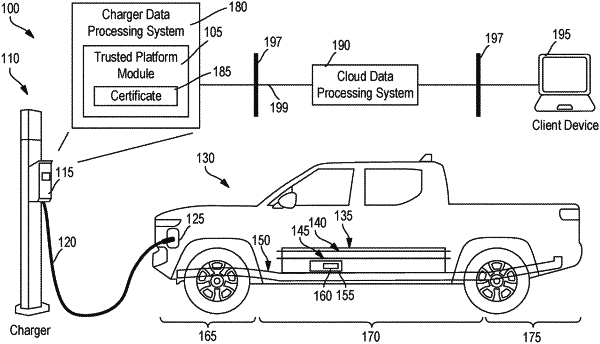| CPC H04L 63/0823 (2013.01) [B60L 53/305 (2019.02); B60L 53/66 (2019.02); B60L 53/32 (2019.02); B60L 53/34 (2019.02); H04L 9/32 (2013.01); H04L 9/3263 (2013.01); H04L 9/3268 (2013.01)] | 20 Claims |

|
1. A charging system to charge vehicles, comprising:
an electrical connector to convey power to a vehicle to charge the vehicle;
a trusted platform module to store a certificate of the charging system via a cryptographic technique; and
one or more processors, coupled with memory, to:
retrieve the certificate from the trusted platform module;
generate a request message including an identifier of the charging system and the certificate;
transmit the request message to a remote computing system to establish a communication connection;
establish the communication connection with the remote computing system responsive to a first verification, by the remote computing system, that the certificate is authentic and a second verification that the certificate is mapped to the identifier via mapping data that links certificates associated with identifiers of charging systems; and
responsive to the first verification that the certificate is authentic and the second verification that the certificate is mapped to the identifier, transmit, to the remote computing system, data corresponding to power conveyed by the electrical connector to the vehicle.
|